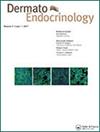Systematic literature review and meta-analysis on the prevalence of rotavirus genotypes in Europe and the Middle East in the post-licensure period.
IF 4.8
4区 医学
引用次数: 0
Abstract
Previous systematic literature reviews of rotavirus genotype circulation in Europe and the Middle East are limited because they do not include country-specific prevalence data. This study documents country-specific evidence on the prevalence of rotavirus genotypes in Europe and the Middle East to enable more precise epidemiological modeling and contribute to the evidence-base about circulating rotavirus genotypes in the post-vaccination era. This study systematically searched PubMed, Embase and Scopus for all empirical epidemiological studies that presented genotype-specific surveillance data for countries in Europe and the Middle East published between 2006 and 2021. The STROBE checklist was used to assess the quality of included studies. Proportional meta-analysis was conducted using the generic inverse variance method with arcsine transformation and generalized linear-mixed models to summarize genotype prevalence. Our analysis estimated the genotype prevalence by country across three date categories corresponding with rotavirus seasons: 2006-2010, 2011-2015, 2016-2021. A total of 7601 deduplicated papers were identified of which 88 studies were included in the final review. Rotavirus genotypes exhibited significant variability across regions and time periods, with G1P[8], G2P[4], G3P[8], G4P[8], G9P[8], and, to a lesser extent G12P[8], being the most prevalent genotypes through different regions and time-periods. Uncommon genotypes included G3P[9] in Poland, G2P[6] in Iraq, G4P[4] in Qatar, and G9P[4] as reported by the European Rotavirus Network. There was high genotype diversity with routinely identified genotypes being G1P[8], G2P[4], G3P[8], G4P[8], and G9P[8]; there was high variability across time periods and regions. Continued surveillance at the national and regional levels is relevant to support further research and inform public health decision-making.关于欧洲和中东地区轮状病毒基因型流行情况的系统文献综述和荟萃分析。
以往关于欧洲和中东地区轮状病毒基因型流行情况的系统性文献综述十分有限,因为它们没有包含特定国家的流行率数据。本研究记录了欧洲和中东地区轮状病毒基因型流行率的国别证据,以便能够进行更精确的流行病学建模,并为后疫苗接种时代轮状病毒基因型流行的证据基础做出贡献。本研究系统地检索了PubMed、Embase和Scopus上2006年至2021年期间发表的所有提供欧洲和中东国家基因型特异性监测数据的实证流行病学研究。采用 STROBE 核对表评估纳入研究的质量。使用带弧线变换的通用逆方差法和广义线性混合模型进行了比例荟萃分析,以总结基因型流行率。我们的分析估计了2006-2010年、2011-2015年和2016-2021年这三个轮状病毒流行季节中各国的基因型流行率。共发现了 7601 篇重复论文,其中 88 项研究被纳入最终审查。轮状病毒的基因型在不同地区和不同时期表现出显著的差异性,G1P[8]、G2P[4]、G3P[8]、G4P[8]、G9P[8]以及较小程度上的 G12P[8] 是不同地区和不同时期最常见的基因型。不常见的基因型包括波兰的 G3P[9]、伊拉克的 G2P[6]、卡塔尔的 G4P[4] 和欧洲轮状病毒网络报告的 G9P[4]。基因型的多样性很高,常规确定的基因型有 G1P[8]、G2P[4]、G3P[8]、G4P[8]和 G9P[8];不同时期和地区之间的差异很大。继续在国家和地区层面进行监测对于支持进一步研究和为公共卫生决策提供信息具有重要意义。
本文章由计算机程序翻译,如有差异,请以英文原文为准。
求助全文
约1分钟内获得全文
求助全文
来源期刊

Human Vaccines & Immunotherapeutics
BIOTECHNOLOGY & APPLIED MICROBIOLOGY-IMMUNOLOGY
自引率
8.30%
发文量
0
审稿时长
1 months
期刊介绍:
(formerly Human Vaccines; issn 1554-8619)
Vaccine research and development is extending its reach beyond the prevention of bacterial or viral diseases. There are experimental vaccines for immunotherapeutic purposes and for applications outside of infectious diseases, in diverse fields such as cancer, autoimmunity, allergy, Alzheimer’s and addiction. Many of these vaccines and immunotherapeutics should become available in the next two decades, with consequent benefit for human health. Continued advancement in this field will benefit from a forum that can (A) help to promote interest by keeping investigators updated, and (B) enable an exchange of ideas regarding the latest progress in the many topics pertaining to vaccines and immunotherapeutics.
Human Vaccines & Immunotherapeutics provides such a forum. It is published monthly in a format that is accessible to a wide international audience in the academic, industrial and public sectors.
 求助内容:
求助内容: 应助结果提醒方式:
应助结果提醒方式:


